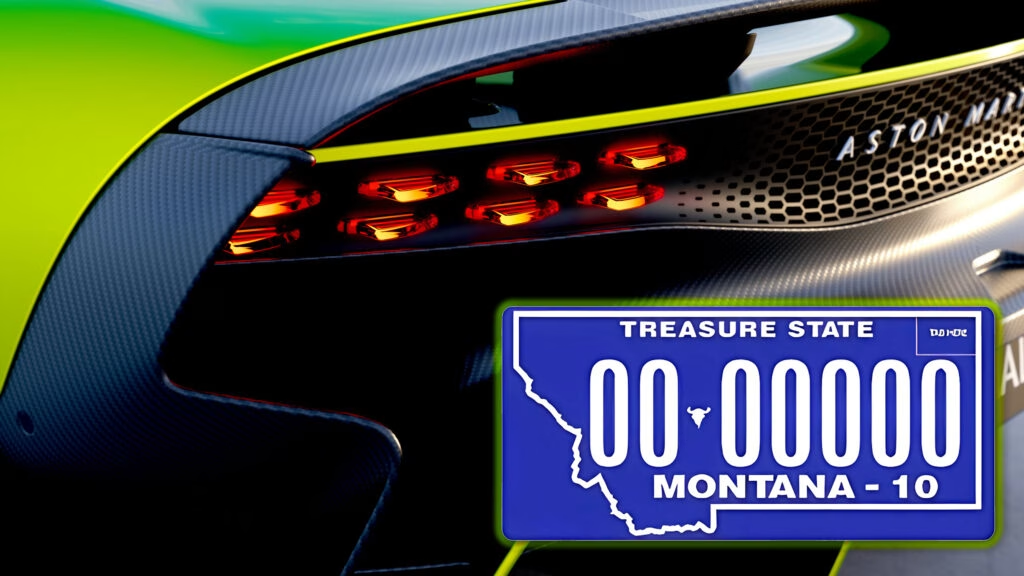Montana has become an unexpected hotspot for supercar enthusiasts, not just for its breathtaking landscapes but for its tax advantages. If you’ve ever spotted a high-end vehicle sporting Montana plates far from the state, you might be witnessing a clever tax strategy in action. Many wealthy car owners are registering their prized possessions in Montana to sidestep hefty taxes in their home states. This practice has raised eyebrows and sparked a heated debate among lawmakers across the country.
Why is Montana a Tax Haven for Supercars?
Montana’s appeal lies in its lack of a sales tax and mandatory vehicle inspections. This combination makes it incredibly attractive for exotic car buyers. By forming a Limited Liability Company (LLC) in Montana, owners can register their vehicles without ever needing to set foot in the state. This loophole has led to a surge in luxury vehicle registrations, with companies in Montana eager to assist buyers in navigating the process.
The numbers are staggering. In 2024 alone, Montana saw over 10,000 registrations for exotic and ultra-luxury vehicles, including brands like Aston Martin, Bugatti, and Ferrari. To put that into perspective, Montana, with a population of just 879,000, boasts more than double the national average of registered vehicles per capita. Meanwhile, states like Washington, which has a population seven times larger, recorded significantly fewer luxury vehicle registrations.
States Fight Back: Utah and California Take Action
As you can imagine, this tax avoidance strategy hasn’t gone unnoticed. States like Utah and California are stepping up efforts to reclaim lost tax revenue. Utah recently enacted a law that allows the state to track down tax evaders who register their vehicles in Montana. Officials believe this could recover up to $100 million in back taxes and penalties. Utah tax commissioner John Valentine expressed frustration, stating that these wealthy individuals contribute nothing to support the state while benefiting from its resources.
California has adopted a different approach, employing cameras to monitor Montana plates and investigate potential tax evaders. The law stipulates that vehicles registered outside California must remain out of state for 12 months to avoid sales tax. However, some savvy owners have found a workaround: they leave their cars in what’s colloquially known as “tax jail” in Montana, ensuring they meet the required time limit before bringing their vehicles back to California.
The Legal and Ethical Debate
The situation raises important questions about the ethics of tax avoidance versus tax evasion. While many people seek every deduction available to them, the wealthy are using similar strategies to save on taxes, albeit on a much grander scale. Montana lawmakers, like Senator Greg Hertz, defend the state’s LLC law, arguing that it fosters competition and job creation. However, critics argue that it creates an unfair advantage for the wealthy while depriving other states of vital tax revenue.
Michael Willing, president of Deer Creek Corporate Services, emphasizes that LLCs are independent entities, which complicates the issue further. The legal grey area surrounding this practice has ignited a fierce debate about where financial planning ends and tax evasion begins.
The Bigger Picture
Ultimately, the situation in Montana highlights a broader issue within the tax system. If loopholes exist, it’s not surprising that individuals will exploit them. The real question is whether lawmakers will take action to close these gaps or continue to allow this practice to thrive. For those registering their luxury vehicles in Montana while driving them in other states, it’s wise to remain vigilant. The chances of getting caught are increasing as states ramp up their enforcement efforts.
The big takeaway? Navigating the world of taxes and vehicle registration isn’t just about finding the best deal—it’s about understanding the implications of your choices. If you’re considering similar strategies, remember that while saving money is important, staying within the bounds of the law is crucial.

